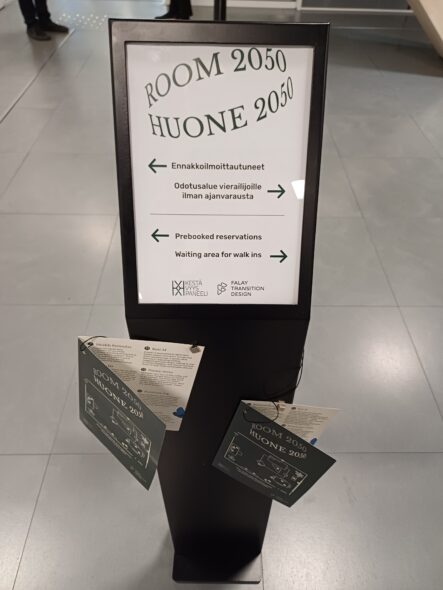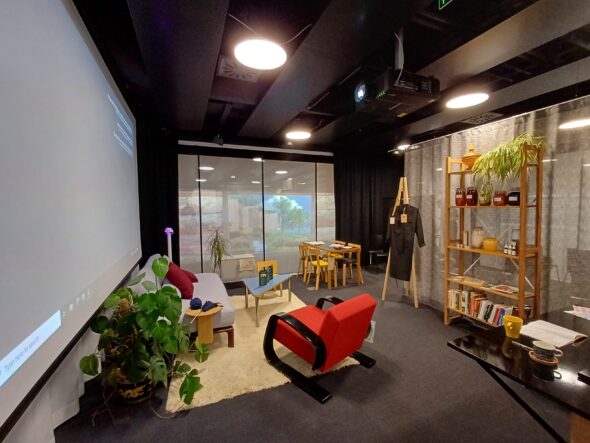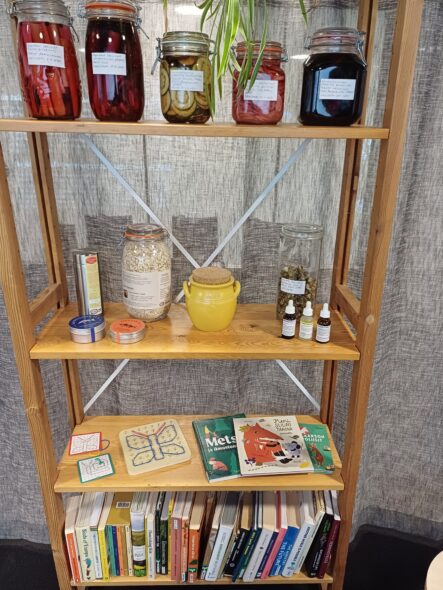30.5.2025
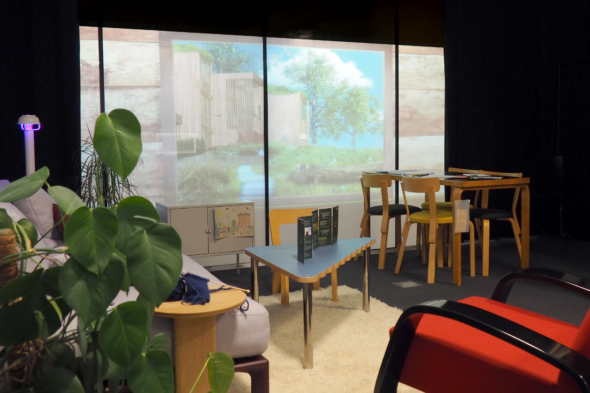
On May 25–26, the Finnish Expert Panel for Sustainable Development hosted a Room 2050 event at Helsinki Central Library Oodi, offering visitors a chance to experience and imagine what life might look like in a post-sustainability transformation future in the year 2050. The event was organised in collaboration with the Falay Transition Design collective.
Some photos and materials of Room 2050 (photos by Savannah Vize, Falay Transition Design):
Room 2050 marked the final phase of Panel’s project on building positive images of futures, which began in the autumn 2024. In the first phase, three positive images of futures were developed in collaboration with Demos Helsinki. These images of futures were then transformed into tangible objects and stories set in the home of a three-person Helsinki family in the year 2050.
In True-cost Economy, ecological and social harms and benefits are included into the prices of products and services. This image of futures was represented in Room 2050 through new kind of price tags that transparently showed the breakdown of total costs of the product.
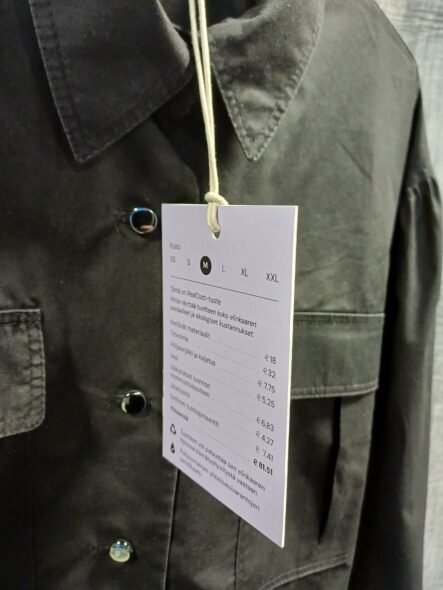
In Planetary Rules, an international, science- and norm-based system regulates overconsumption, restores nature and is responsible for the principles of fair use of natural resources, artificial intelligence and weapon systems. This image of futures was illustrated in Room 2050 by a screen displaying a meeting of a planetary citizens’ panel.
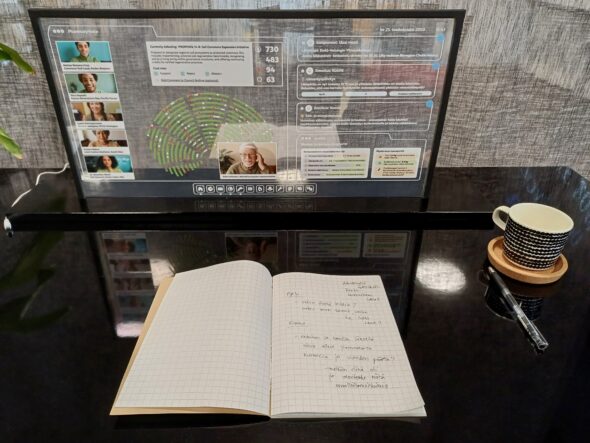
In Sustainability Awareness Revolution, education and learning strengthen the change in values, which leads people to direct their interests, skills and resources in ways that support the sustainability transformation. This image of futures was reflected in Room 2050 in objects such as a study guide, a school notebook, and a work ID badge.
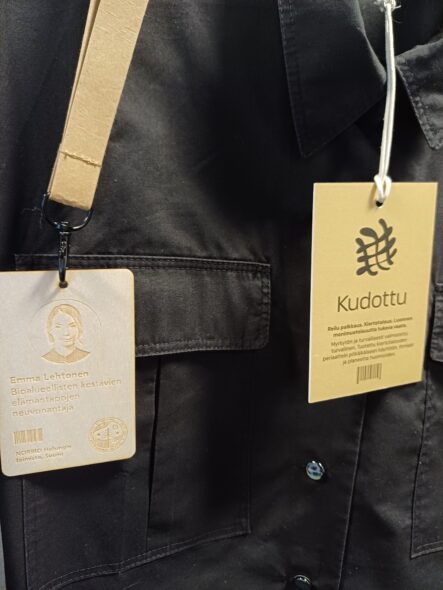
In total, 255 people visited the room of future over the two days. Of these, 199 also sent a postcard from the future to their present-day selves at the end of their visit. Visitors were asked in advance for research consent to collect and archive the postcards and their messages for future studies.
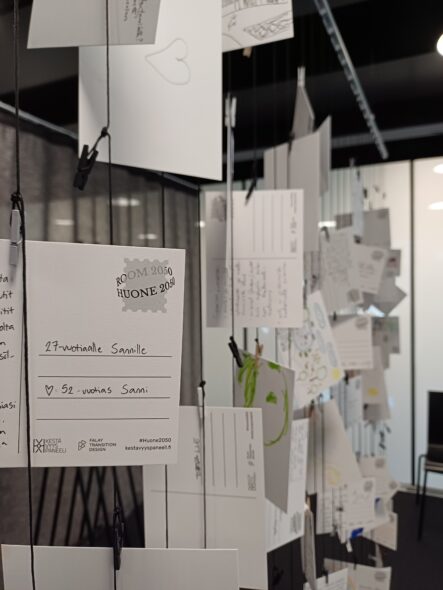
The messages on the postcards and the feedback collected at the end of the visit were largely positive and hopeful. The imagined future in Room 2050 was experienced as communal, warm and loving, instilling a belief that the future could indeed turn out well. At the same time, some feedback expressed frustration that we are not already living according to the values of the Room 2050 world. After all, the conditions to realise such a future already exist—if only we can find a way to shift from today’s cold individualism to a more communal and caring society.
Learn more about the three images of futures behind the room of future: Discussion entry 1/2025 by the Finnish Expert Panel for Sustainable Development
